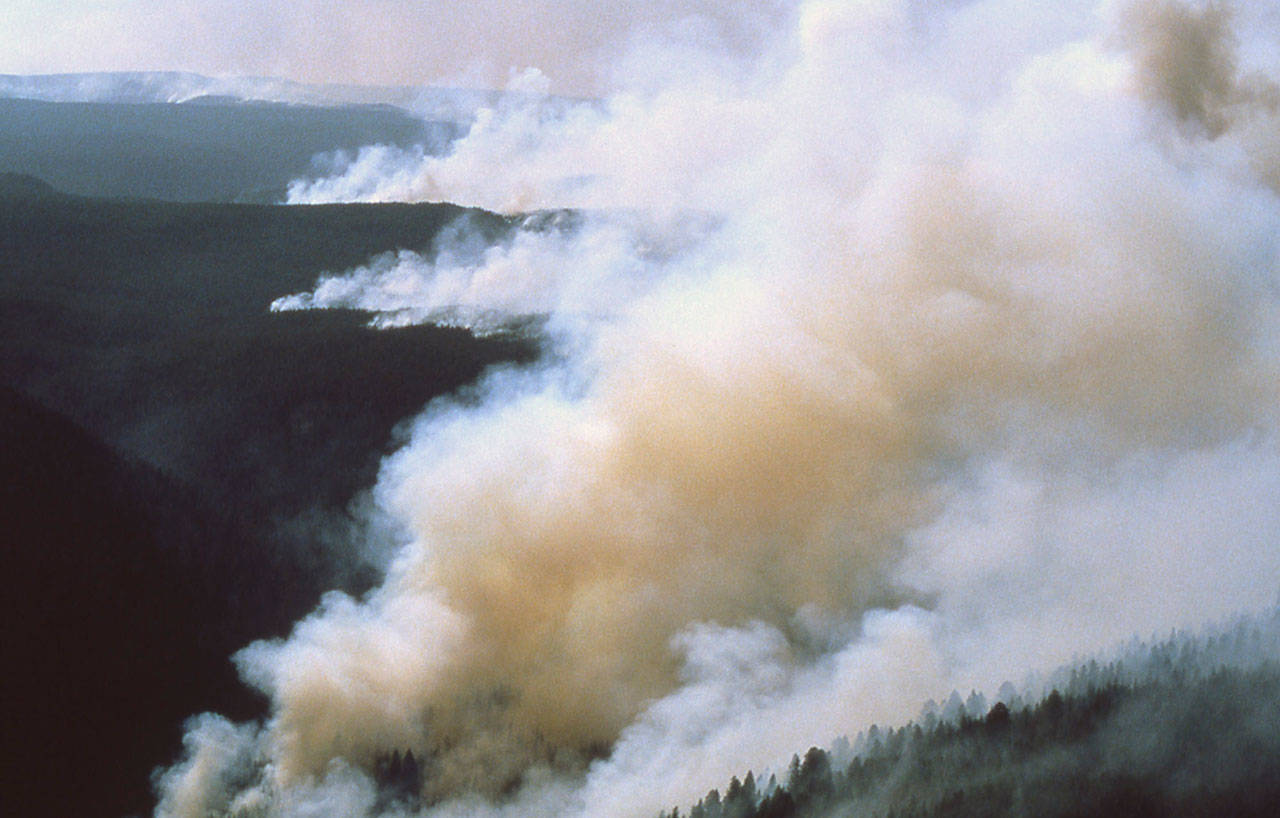Air quality in Pierce County has taken another turn for the worse, according to the State Department of Ecology. Wildfires continue to burn in Eastern Washington and wind patterns have pushed some of that air west, over the mountains.
Current air quality in Pierce County may be unhealthy for sensitive groups (Orange). This includes:
- Adults older than 65.
- Pregnant women.
- Infants and children.
- People with heart or lung disease, such as asthma or Chronic Obstructive Pulmonary Disease (COPD).
- People with diabetes.
- People who have had a stroke.
Everyone’s health situation is unique. Check with your health care provider if you have concerns about air quality. Generally, sensitive groups should closely monitor air quality and limit time spent outdoors during times of poor air quality.
Conditions can change quickly. Visit the State Department of Ecology website to monitor air quality conditions at: https://fortress.wa.gov/ecy/
People with chronic health conditions should check with their healthcare providers about how to manage during times of unhealthy air quality.
Individuals with asthma or COPD should make sure to do the following:
- Have an asthma or COPD action plan that explains how to adjust medications and activities as needed.
- Follow instructions on how to clean and maintain inhalers and respiratory equipment.
- Ensure that children have rescue inhalers available at schools, daycares, and during activities and make sure they are not expired.
- Know your allergies or triggers and how to avoid them.
Schools, coaches, after school programs, and student athletes should pay careful attention to the air quality forecast. The Washington State Department of Health recommends that people avoid outside exercise when the air quality is unhealthy (Red). The agency also recommends canceling youth outdoor events when the air quality is rated unhealthy (Red) or very unhealthy (Purple). This includes youth sports camps, practices, or games. Parents should talk to their children’s coaches regarding air quality concerns.
Find valuable information on air quality and learn what to do to protect your family at:
- Puget Sound Clean Air Agency—www.pscleanair.org/
burnbans . - Washington Smoke Blog—http://wasmoke.blogspot.
com/ . - State Department of Ecology—https://fortress.wa.
gov/ecy/enviwa/ : Provides a map of active air quality issues. - State Department of Health—www.doh.wa.gov/
smokefromfires : Provides information on how to protect against wildfire smoke. - National Weather Service—www.weather.gov/: Weather related alerts, including air quality.


